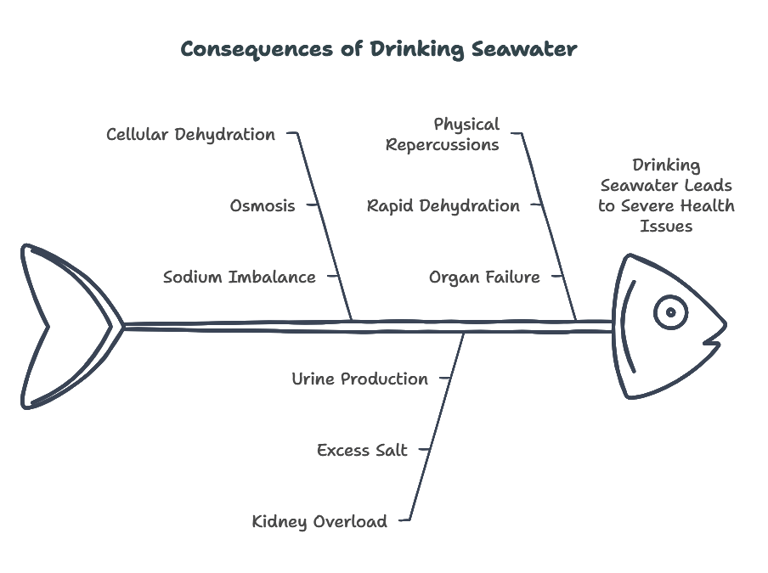Can You Drink Seawater in an Emergency? Here's Why It's Dangerous
Can you drink seawater in an emergency? Learn why seawater is so dangerous, how it worsens dehydration, and safer alternatives for survival situations at sea.
SURVIVAL
As an Amazon Associate, I earn from qualifying purchases. This means I may earn a commission if you click on an affiliate link and make a purchase, at no extra cost to you.
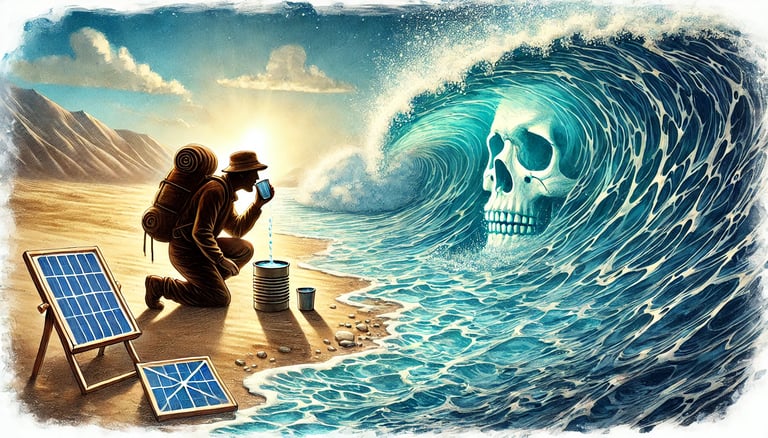

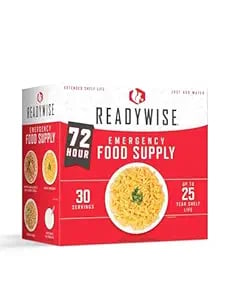

READYWISE - 72 Hours, 30 Servings, Emergency Food Supply, MRE, Pre-made, Freeze-Dried, Survival Food, Meal Essentials for, Camping, Hiking, and, Emergencies, Individually Packaged, 25-Year Shelf Life
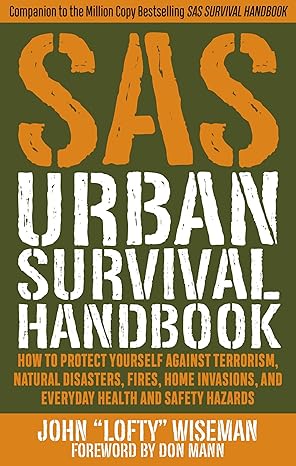

SAS Urban Survival Handbook: How to Protect Yourself Against Terrorism, Natural Disasters, Fires, Home Invasions, and Everyday Health and Safety Hazards Paperback – May 1, 2018
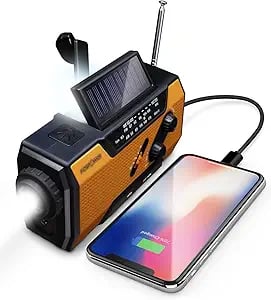

FosPower Emergency Weather Radio (Model A1) NOAA/AM/FM with 7400mWh Portable Power Bank, USB/Solar/Hand Crank Charging, Battery Operated, SOS Alarm & Flashlight for Indoor/Outdoor Emergencies
Why Drinking Seawater in an Emergency Is a Deadly Mistake
When faced with survival challenges in a remote location, particularly near vast oceans, the temptation to drink seawater may seem logical. After all, it's water, right? Unfortunately, consuming seawater in an emergency is not only counterproductive—it’s dangerous and potentially deadly.
What Happens When You Drink Seawater?
Seawater contains roughly 35 grams of salt per liter, which is four times saltier than human blood. While your body needs sodium to function, it cannot handle such high concentrations. Here’s why drinking seawater is problematic:
Cellular Dehydration:
High salt concentrations cause water to move out of your cells and into your bloodstream. This process, known as osmosis, tries to balance sodium levels but leaves your cells depleted of water, accelerating dehydration.Kidney Overload:
Your kidneys work tirelessly to remove excess salt, but they can only produce urine that’s less salty than seawater. To expel the salt from even a small amount of seawater, your body needs to use more water than you consumed, exacerbating dehydration.Physical Repercussions:
The impacts of consuming seawater are immediate and severe:Rapid Dehydration
Vomiting and Nausea
Delirium and Hallucinations
Kidney Failure
Brain Damage
Death in extreme cases
Why It’s a Survival Myth
Some survival myths suggest that drinking small amounts of seawater—particularly when diluted with fresh water—might stave off dehydration. However, this is highly controversial and not supported by most survival experts. The risks of salt toxicity far outweigh any potential short-term benefits.
What to Do Instead of Drinking Seawater
In survival scenarios, your energy should be directed toward finding or creating fresh water sources. Here are proven methods to obtain drinkable water:
Collect Rainwater:
Rainwater is one of the safest and most accessible sources of fresh water. Use tarps, leaves, or any container to gather and store it.Use a Solar Still:
A solar still can desalinate seawater, producing small amounts of fresh water. This requires basic materials like clear plastic, a container, and sunlight.Tap Into Plants and Fruits:
Some plants and fruits naturally store drinkable water. Knowing which plants are safe is critical, so prepare by studying edible flora.Purify Natural Freshwater:
Streams, rivers, or ponds may contain fresh water, but always purify it using filtration devices, boiling, or purification tablets to eliminate bacteria and toxins.
FAQs About Drinking Seawater in Emergencies
1. Why can’t humans drink seawater like fish do?
Fish have specialized kidneys and gills that expel excess salt, a biological feature humans lack. Drinking seawater overwhelms our bodies, causing dehydration.
2. Can I dilute seawater with fresh water to make it drinkable?
While diluting seawater reduces its salt concentration, even small amounts of salt can strain your kidneys. It's best to avoid this unless it's a last resort and the dilution ratio is significant (e.g., 10:1).
3. What are the first signs of dehydration from seawater?
Symptoms include excessive thirst, dry mouth, dark urine, confusion, and dizziness. Severe cases may involve hallucinations and kidney failure.
4. Are there any circumstances where drinking seawater is safe?
No, drinking seawater is not safe under any circumstance. Focus on alternative water sources or purification methods.
5. How much seawater can kill you?
Even small amounts of seawater can be lethal if consumed over time. The effects depend on your hydration level, body size, and how much you drink, but severe dehydration can set in within hours.
Conclusion
Drinking seawater in an emergency may feel like a desperate choice, but it’s one that leads to dire consequences. Understanding why seawater is harmful and knowing how to secure fresh water could mean the difference between life and death in a survival scenario. Stay informed, stay prepared, and always prioritize fresh water.
If you liked this, you'll love these:
